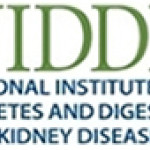- Industrie: Government; Health care
- Number of terms: 17329
- Number of blossaries: 0
- Company Profile:
The National Institute of Diabetes and Digestive and Kidney Diseases (NIDDK) conducts and supports research on many of the most serious diseases affecting public health. The Institute supports much of the clinical research on the diseases of internal medicine and related subspecialty fields, as ...
A type of rapid-acting insulin with an onset of 15 minutes, a peak at 30 to 90 minutes, and a duration of 3 to 5 hours.
Industry:Health care
Also called eag or average glucose; another way to report the results of an a1c test. The a1c test measures average glucose levels over the past 2 to 3 months. In the past, results were reported as a percentage. Results reported as an eag are given as mg/dl, the same units used for self-monitoring of blood glucose with a blood glucose meter. For example, results of an a1c test can be reported as an eag of 126 mg/dl, which is equal to 6 percent.
Industry:Health care
All of the chemical and physical processes in the body necessary for life. Processes include breaking down food for energy and producing needed substances.
Industry:Health care
Abnormally large; in diabetes, refers to abnormally large babies that may be born to women with diabetes.
Industry:Health care
A waste product in the blood from the breakdown of protein. The kidneys filter blood to remove urea. As kidney function decreases, the bun level increases.
Industry:Health care
A waste product from meat protein in the diet and from the muscles of the body. Creatinine is removed from the body by the kidneys; as kidney disease progresses, the level of creatinine in the blood increases.
Industry:Health care
A waste product found in the blood that results from the normal breakdown of protein in the liver. Urea is normally removed from the blood by the kidneys and then excreted in the urine.
Industry:Health care
A unit representing the energy provided by food. Carbohydrate, protein, fat, and alcohol provide calories in the diet. Carbohydrate and protein have 4 calories per gram, fat has 9 calories per gram, and alcohol has 7 calories per gram.
Industry:Health care
A unit of weight in the metric system. An ounce equals 28 grams. In some meal plans for people with diabetes, the suggested amounts of food are given in grams.
Industry:Health care
A type of therapy that uses a strong beam of light to treat a damaged area. The beam of light is called a laser. A laser is sometimes used to seal blood vessels in the eye of a person with diabetes. See photocoagulation.
Industry:Health care
